| History |
| Thursday, 14 February 2008 23:23 | ||||||||||||
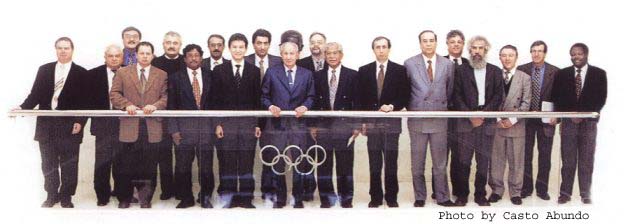 FIDE - Uniting the Chess World Founded in Paris on 20 July 1924, the World Chess Federation (Federation Internationale des Echecs, known as FIDE from its French acronym) is recognized by the International Olympic Committee (IOC) as the supreme body, responsible for the organization of chess and its championships at global and continental levels. Following its recognition as an International Organization in 1989, FIDE was recognized by the IOC in June 1999 as an International Sports Federation. Prior to the founding of FIDE, chess had existed as a sport played at competitive level for centuries. In its over 2000 years history from its origins in India and outlying countries in Asia, the game had undergone a series of changes and metamorphosed into its present day from by the 15th century. In those days, there was no common code governing the Laws of Chess or uniform regulations for international competitions, the only binding forces were that it was a gentleman`s sport in which the players were expected to act in a certain form of decorum and the enduring beauty of the game to its practitioners. Today, FIDE with a membership of 161 countries, is one of the most dynamic sports organizations in the world. It brings together men and women of different races, creeds and political persuasion as it carries out its main task of developing the activities of millions of chess players around the world. The purpose and aim of FIDE are the diffusion and development of chess among all nations of the world, as well as the raising of the level of chess culture and knowledge on a sporting, scientific, creative and cultural basis. FIDE supports a close international cooperation of the chess devotees in all fields of chess activity, thereby also aiming to improve friendly harmony among peoples. FIDE issues the rules of chess and the provisions pertaining to the organization of the Chess Olympiad, World Championships and all other FIDE competitions. It awards the international chess titles of Grandmaster, International Master, FIDE Master, Woman Grandmaster, Woman International Master, FIDE Woman Master, International Arbiter and other titles. The Story of the World Chess ChampionshipThe World Chess Championship is undoubtedly one of FIDE's most prestigious events. Throughout history, chess players have known who were the strongest (or at least the most famous) players of their day. Before the advent of FIDE and a clearly established system of qualification tournaments was put in place, there were those players who clearly held sway over their counterparts in the world and in this sense, became known as World Champions. But, at the same time, there were instances of World Champions who kept avoiding worthy challengers or choosing weaker opponents and chess was the poorer for it. Although efforts were made by the players in 1922, some two years before the birth of FIDE, to establish regulations for the World Champions, it was not until 1948, however, when FIDE, playing it's clearly established role as custodian of the game of chess, just as in the case with other sports federations, decided to take over the management and administration of the World Chess Championships. Following the death of World Champion Alexander Alekhine in 1946, FIDE went on to organize the World Championship Tournament among the leading players at the time and Grandmaster Mikhail Botvinnik became World Champion. Since then, FIDE has successfully organized a series of qualifying tournaments, starting from the National Championships to Zonal Tournaments, played in the FIDE zones around the world, including the performance on the rating list from FIDE's over 5000 tournaments globally, to the preliminaries and final matches of the World Chess Championship. These series of qualification tournaments and matches as instituted by FIDE, have seen the emergence of such great names in chess history as Smyslov, Tal, Petrosian, Spassky, Fischer, Karpov and Kasparov. FIDE trough its various organs introduced a series of measures to fine-tune the system of qualifications as well as the cycles of the World Championship but by far the most significant change introduced, was the series of knockout matches, which was the brainchild of FIDE President Kirsan Ilyumzhinov. The idea was to have the top 100 players in the world engaged in a series of elimination matches over a one-month period. It was also a system which focused on improving the financial circumstances of more players as against the old system, where only a few people were benefiting as professionals in the cycle. FIDE also sought to use this system of matches to bring in both Grandmasters Garry Kasparov and Anatoly Karpov in a unification tournament, but following the refusal of Kasparov to honor the invitation, FIDE had no choice than to ensure the continuity of the World Chess Championships in line with its established rules and regulations. Thus after a series of discussions at various meetings of FIDE, the $5,000,000 World Chess Championship based on the knockout format was inaugurated with the preliminaries and semi-final rounds in Groningen, while the finals were staged at the Olympic Museum in Lausanne. The success of these exciting knockout matches, which showcased chess as a true modern sport, led the FIDE General Assembly to overwhelmingly approve the proposal of the Presidential Board to institute the yearly World Championship cycle with a prize fund of $3,000,000 beginning with the 1999 Championship in Las Vegas. Follow the links for round by rounds results. Results of the 1999 World Chess Championship in Las Vegas, USA.
H.E. Kirsan Ilyumzhinov was born on the 5th of April 1962 in Elista, Republik of Kalmykia, Russia. The Russian diplomat and polotician was elected in 1995. Mr. Ilyumzhinov had prior to this time, being a major chess sponsor following his contribution to the successful hosting of the 1994 Chess Olympiad in Moscow. Since his election as FIDE President, he has sponsored 3 World Championship events namely, the Karpov – Kamsky Match in Elista (1996), the World Chess Championship in Groningen and Lausanne (1997/1998) and the World Chess Championship in Las Vegas (1999). As President of Republic of Kalmykia, his Republic played host to the 33rd Chess Olympiad and 69th FIDE Congress in Elista 1998.
Mr. Florencio Campomanes was born on the 22nd of February 1927 in Manila, Philippines. The Philippine chess player and politician was elected as the 5th FIDE President in 1982. He was Zone President from 1966 to 1970 and FIDE Deputy President for Asia between 1974 and 1982. He was credited with organizing the 1978 Karpov - Kortchnoi World Championship Match in Baguio City as well as the 1992 Chess Olympiad in Manila among other chess events in various parts of the world. One of the most achievements of Mr. Campomanes has been the chess explosion in his native Asia and the world wide growth of the game.
Mr. Fridrik Olafsson was born on the 26th of January 1935 in Reykjavik, Iceland. The Icelandic Lawyer and Chess Grandmaster became the 4th FIDE President in 1978.As Chess Grandmaster he won a number of International Tournaments, and one of his major works is the book on the Spassky – Fischer Match of 1972. In 1982 Mr. Olafsson was appointed Secretary to the Icelandic Parliament.
The late Max Euwe was born on the 20th of May 191 in Watergraafsmeer. The Dutch Professor of mathematics and mechanics became the 3rd President of FIDE in 1970. He also had a distinguished chess playing career having won many international chess tournaments and defeating World Champion Alexander Alekhin to become World Chess Champion in the period 1935 to 1937.
The late Folke Rogard was born on the 6th of July 1899 in Stockholm. A Swedish lawyer by profession, he became the 2nd FIDE President in 1949 after having held the position of President of the Swedish Chess Federation and between 1947 and 1949, the office of Vice-President of FIDE.
The late Alexander Rueb was born on the 27th of December 1882 at The Hague, Netherlands. A Dutch lawyer and diplomat, Mr. Rueb was one of the founders of FIDE, becoming the 1st FIDE President in 1924. He was also an International Arbiter of Chess Composition. FIDE Commissions and Committees
World Championship Cycle |


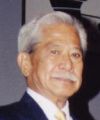

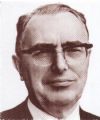
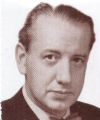
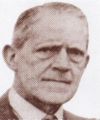




No comments:
Post a Comment